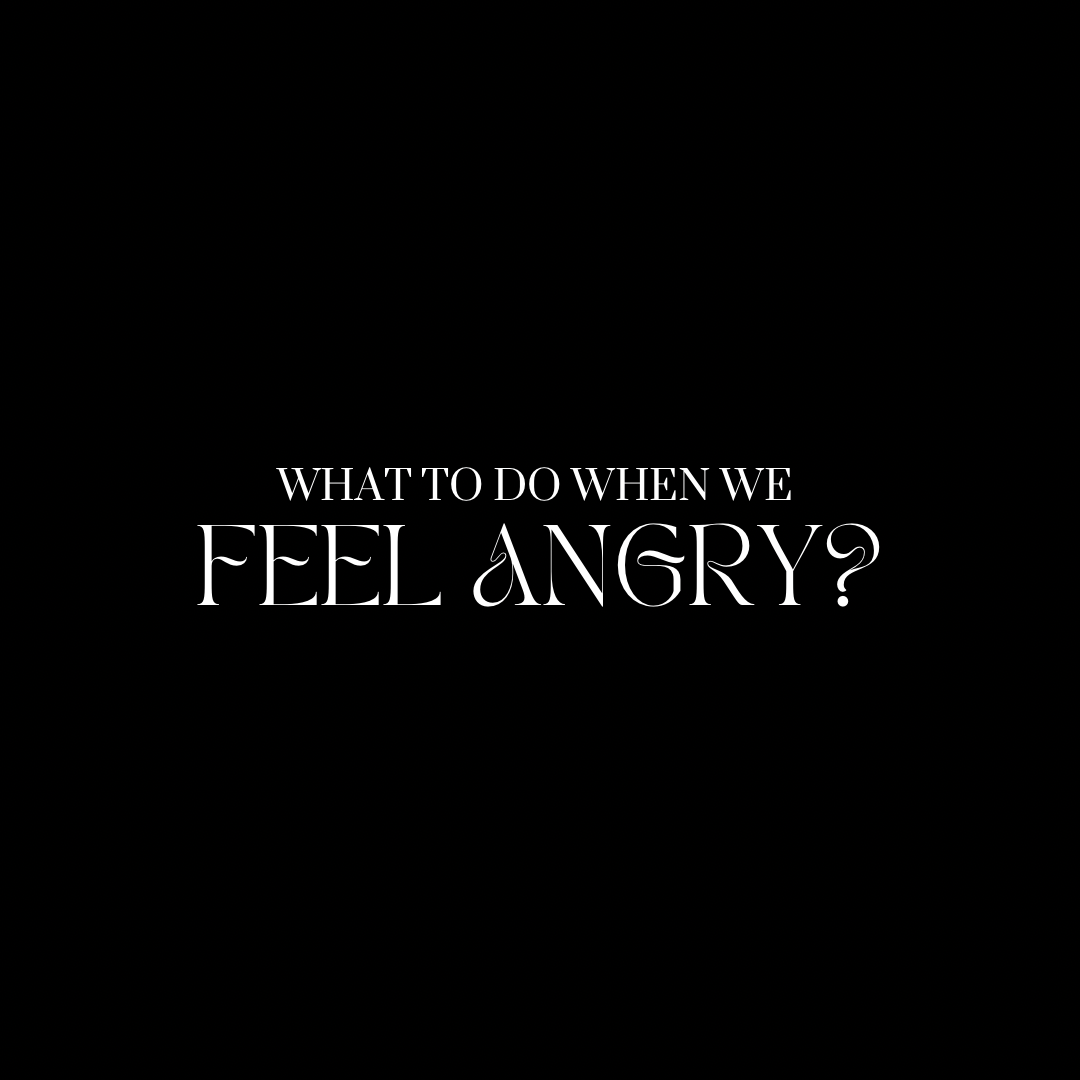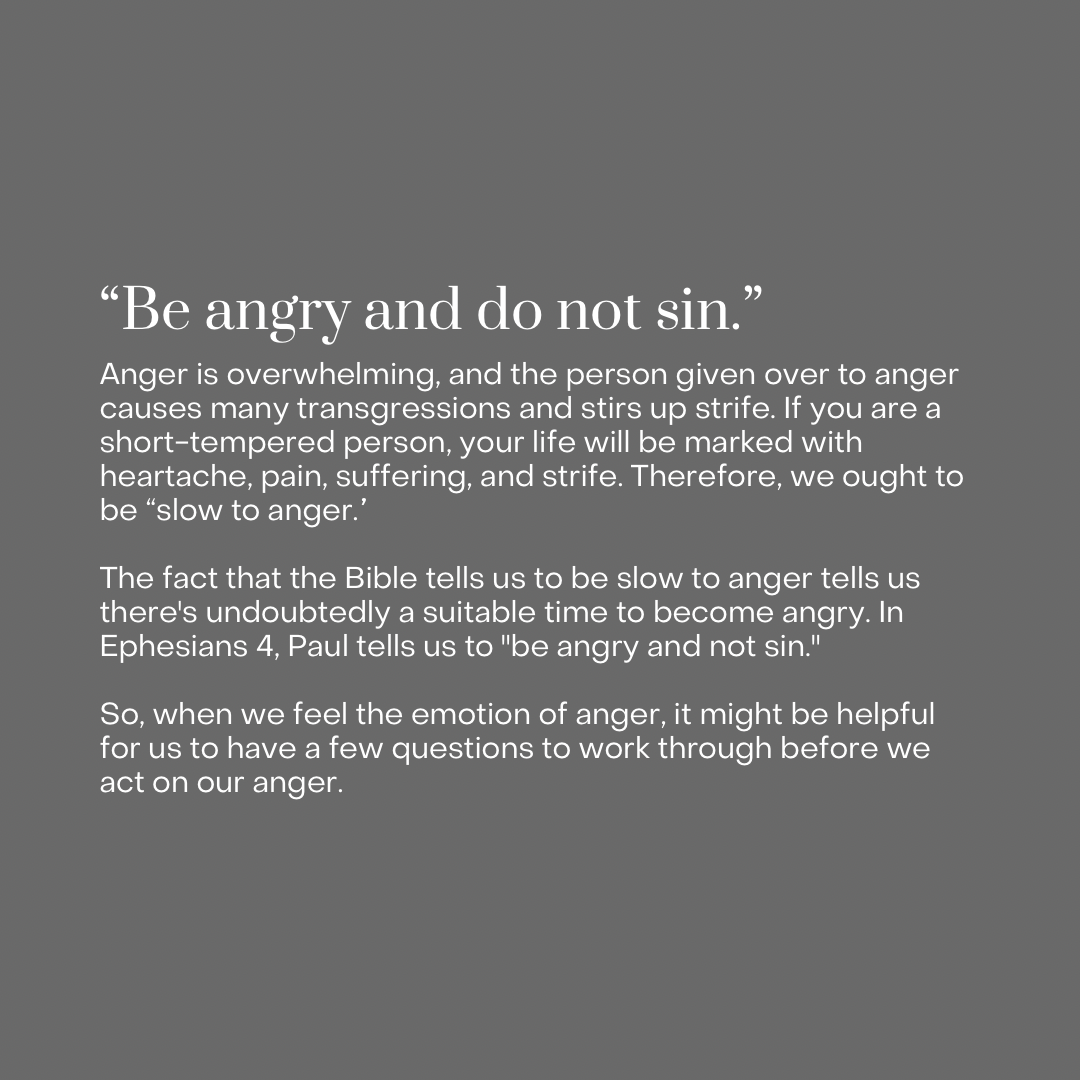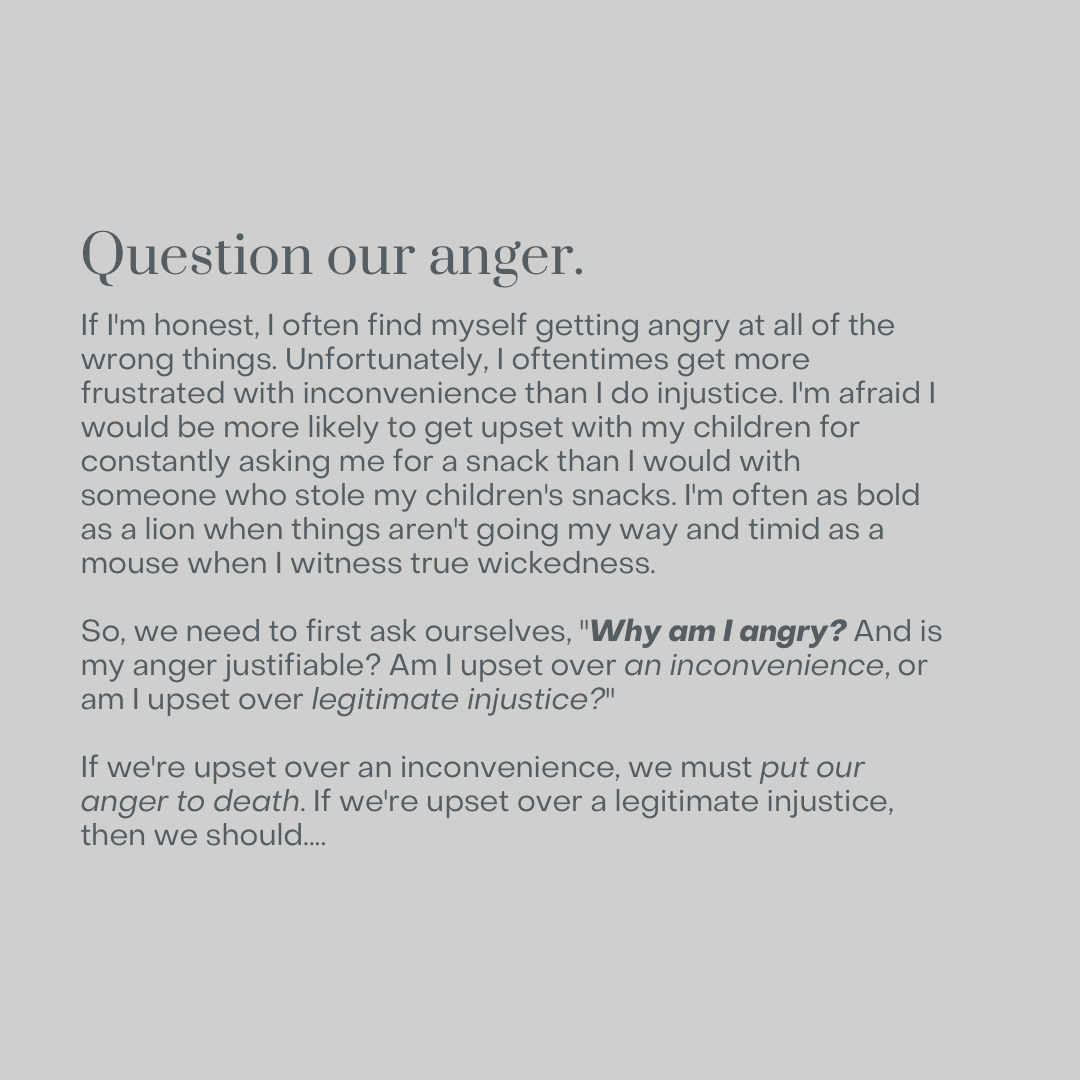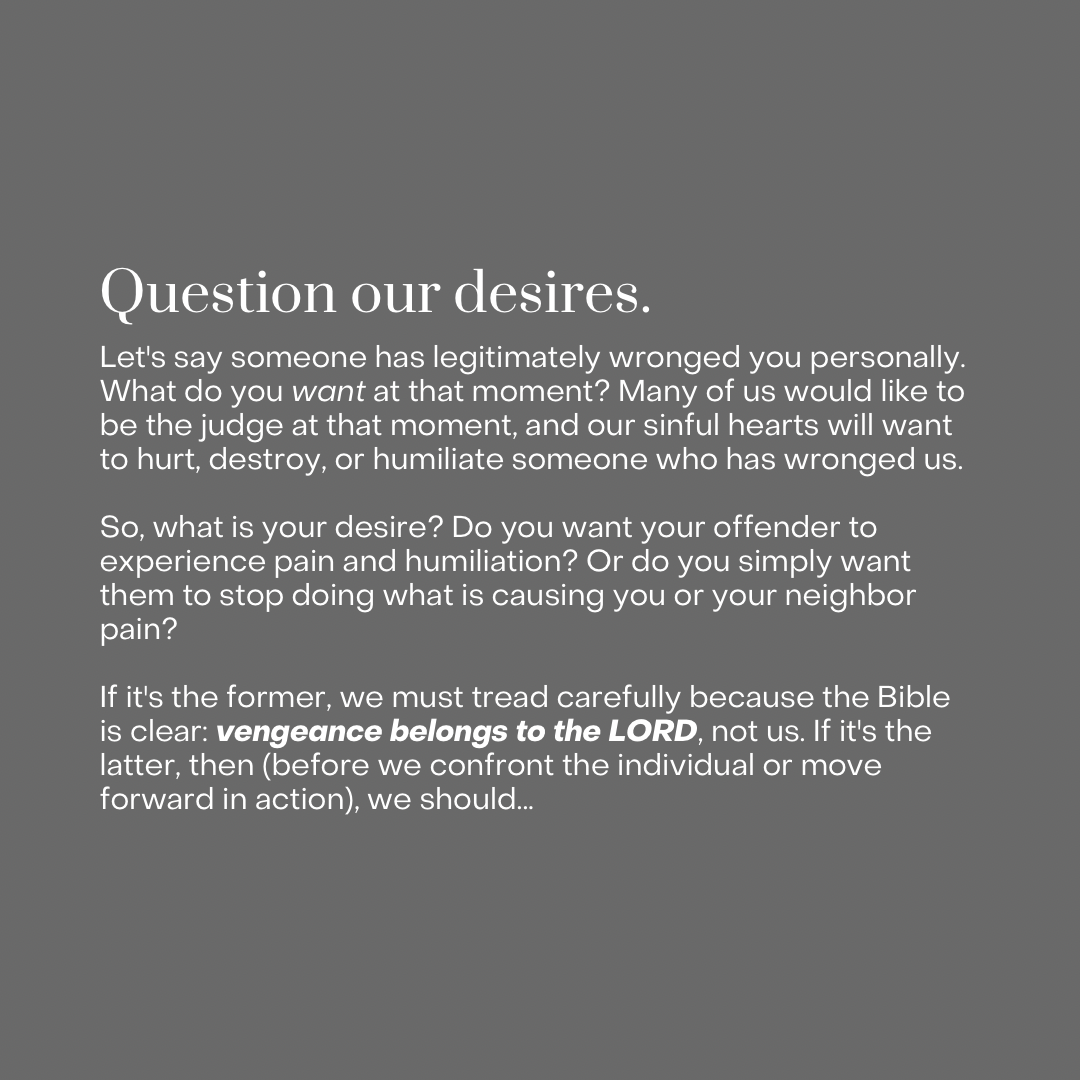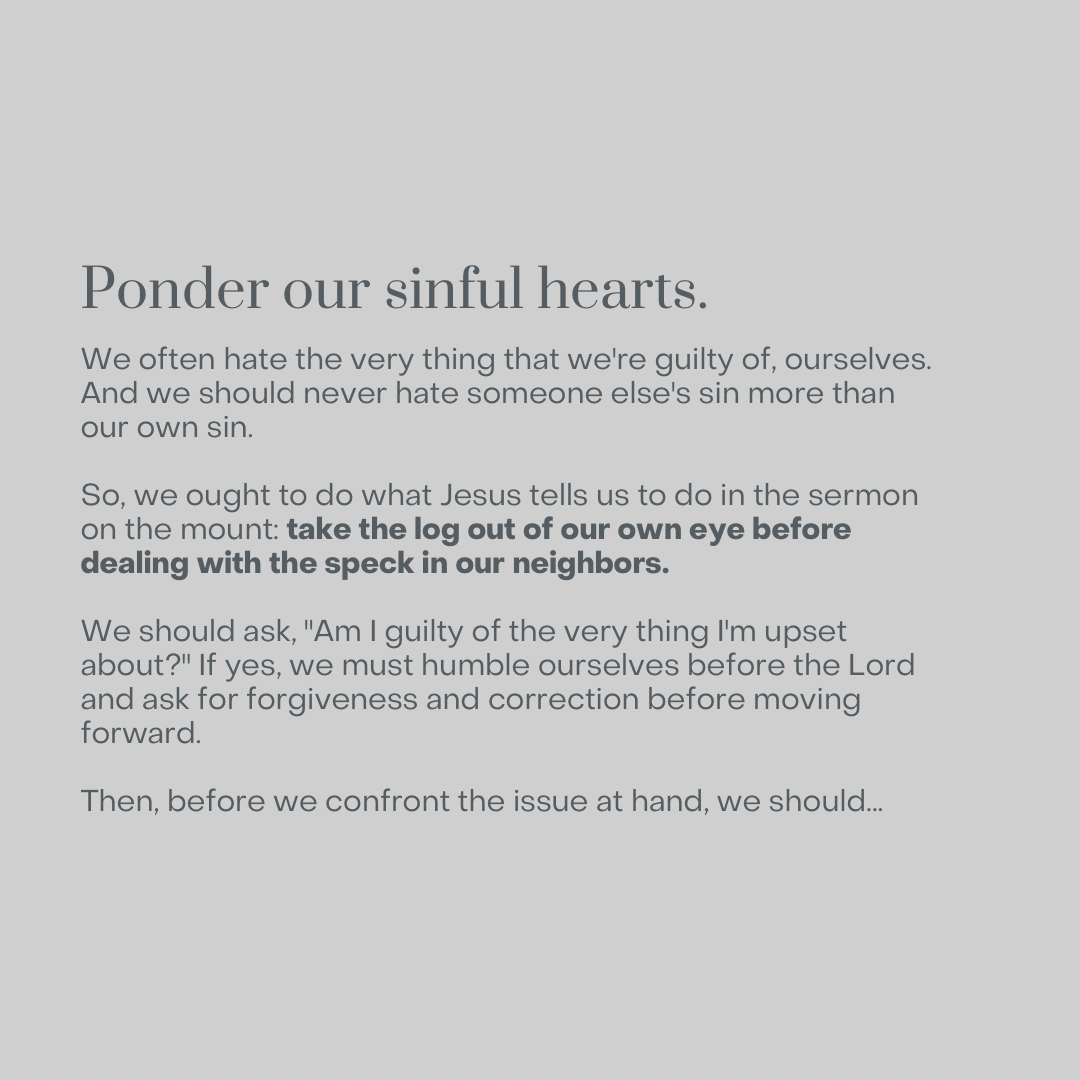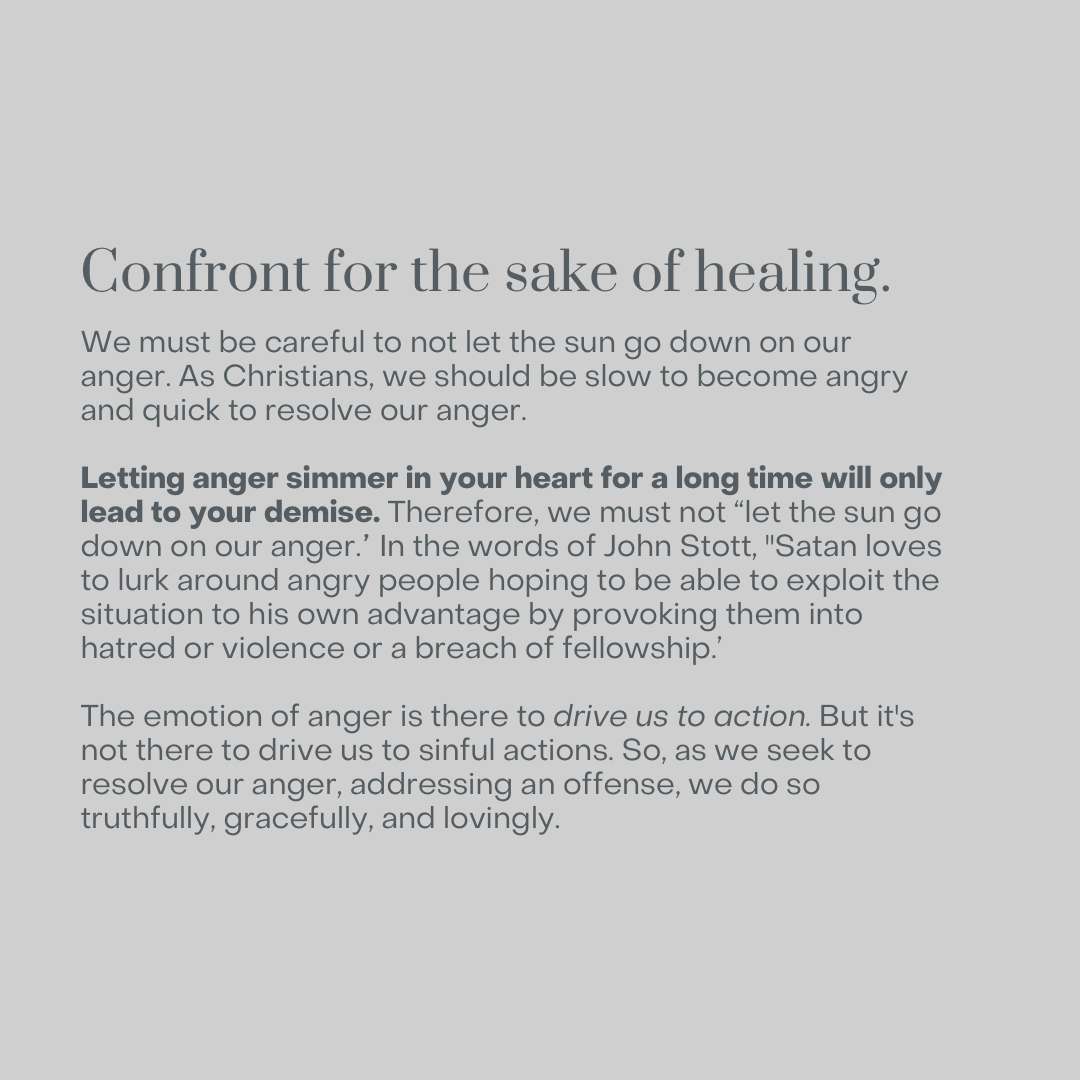BE ANGRY AND DO NOT SIN.
Anger is overwhelming, and the person given over to anger causes many transgressions and stirs up strife. If you are a short-tempered person, your life will be marked with heartache, pain, suffering, and strife. Therefore, we ought to be “slow to anger.”
The fact that the Bible tells us to be slow to anger tells us there's undoubtedly a suitable time to become angry. In Ephesians 4, Paul tells us to "be angry and not sin."
So, when we feel the emotion of anger, it might be helpful for us to have a few questions to work through before we act on our anger.
QUESTION OUR ANGER.
If I'm honest, I often find myself getting angry at all of the wrong things. Unfortunately, I oftentimes get more frustrated with inconvenience than I do injustice. I'm afraid I would be more likely to get upset with my children for constantly asking me for a snack than I would with someone who stole my children's snacks. I'm often as bold as a lion when things aren't going my way and timid as a mouse when I witness true wickedness.
So, we need to first ask ourselves, "Why am I angry? And is my anger justifiable? Am I upset over an inconvenience, or am I upset over legitimate injustice?"
If we're upset over an inconvenience, we must put our anger to death. If we're upset over a legitimate injustice, then we should....
QUESTION OUR DESIRES
Let's say someone has legitimately wronged you personally. What do you want at that moment? Many of us would like to be the judge at that moment, and our sinful hearts will want to hurt, destroy, or humiliate someone who has wronged us.
So, what is your desire? Do you want your offender to experience pain and humiliation? Or do you simply want them to stop doing what is causing you or your neighbor pain?
If it's the former, we must tread carefully because the Bible is clear: vengeance belongs to the LORD, not us. If it's the latter, then (before we confront the individual or move forward in action), we should...
PONDER OUR SINFUL HEARTS.
We often hate the very thing that we're guilty of, ourselves. And we should never hate someone else's sin more than our own sin.
So, we ought to do what Jesus tells us to do in the sermon on the mount: take the log out of our own eye before dealing with the speck in our neighbors.
We should ask, "Am I guilty of the very thing I'm upset about?" If yes, we must humble ourselves before the Lord and ask for forgiveness and correction before moving forward.
Then, before we confront the issue at hand, we should...
PONDER THE GOSPEL.
We must never forget to cross. The justifiable anger you feel toward sin pales in comparison to the anger God feels. He feels indignation toward evil every day. Yet, in his steadfast love, he poured that anger out on his Son so that we (the wicked) might be free.
The cross teaches us that justifiable anger is not an excuse to set aside grace, mercy, and love.
So, preach the gospel to yourself in your anger. The good news of the cross helps us act rightly in our anger; it helps us “be angry and not sin."
After we've pondered the gospel, we should...
CONFRONT FOR THE SAKE OF HEALING.
We must be careful to not let the sun go down on our anger. As Christians, we should be slow to become angry and quick to resolve our anger.
Letting anger simmer in your heart for a long time will only lead to your demise. Therefore, we must not “let the sun go down on our anger.” In the words of John Stott, "Satan loves to lurk around angry people hoping to be able to exploit the situation to his own advantage by provoking them into hatred or violence or a breach of fellowship.’
The emotion of anger is there to drive us to action. But it's not there to drive us to sinful actions. So, as we seek to resolve our anger, addressing an offense, we do so truthfully, gracefully, and lovingly.
